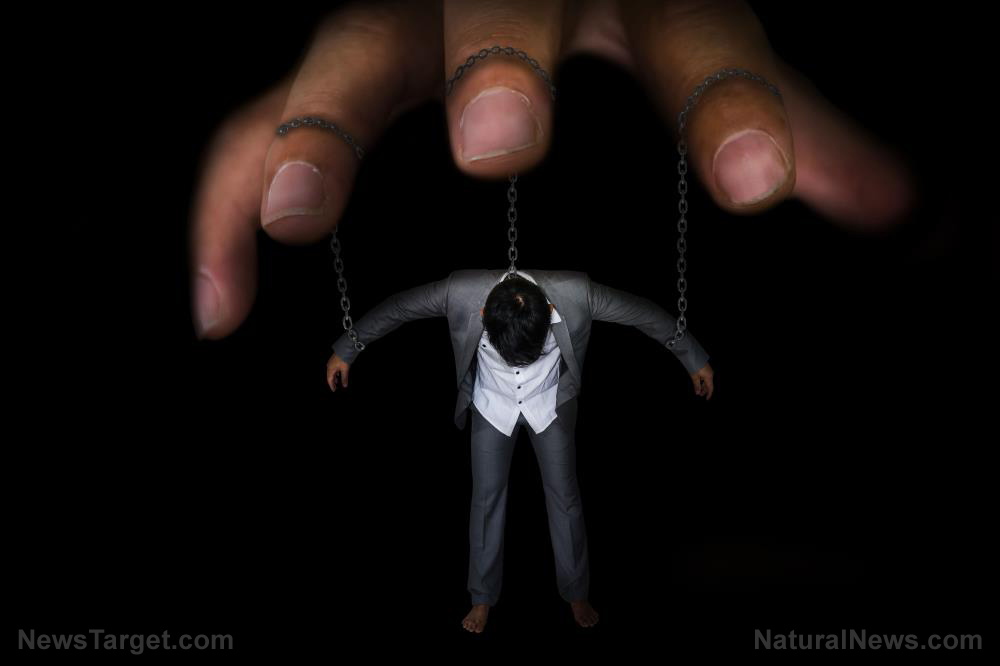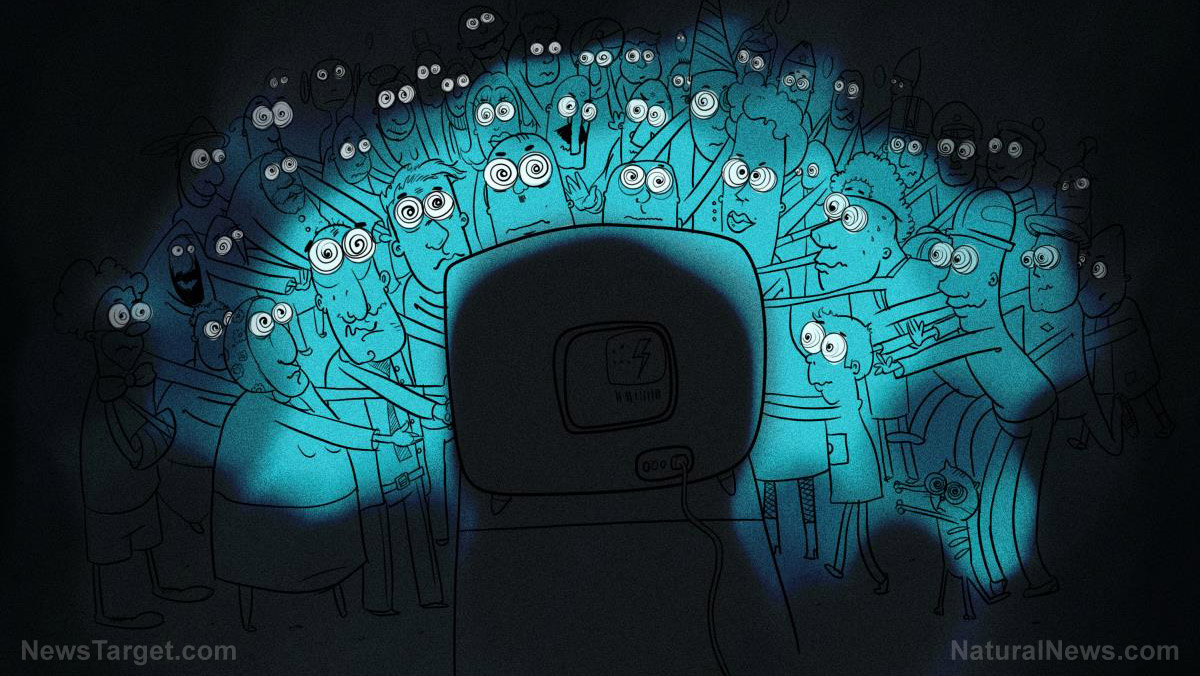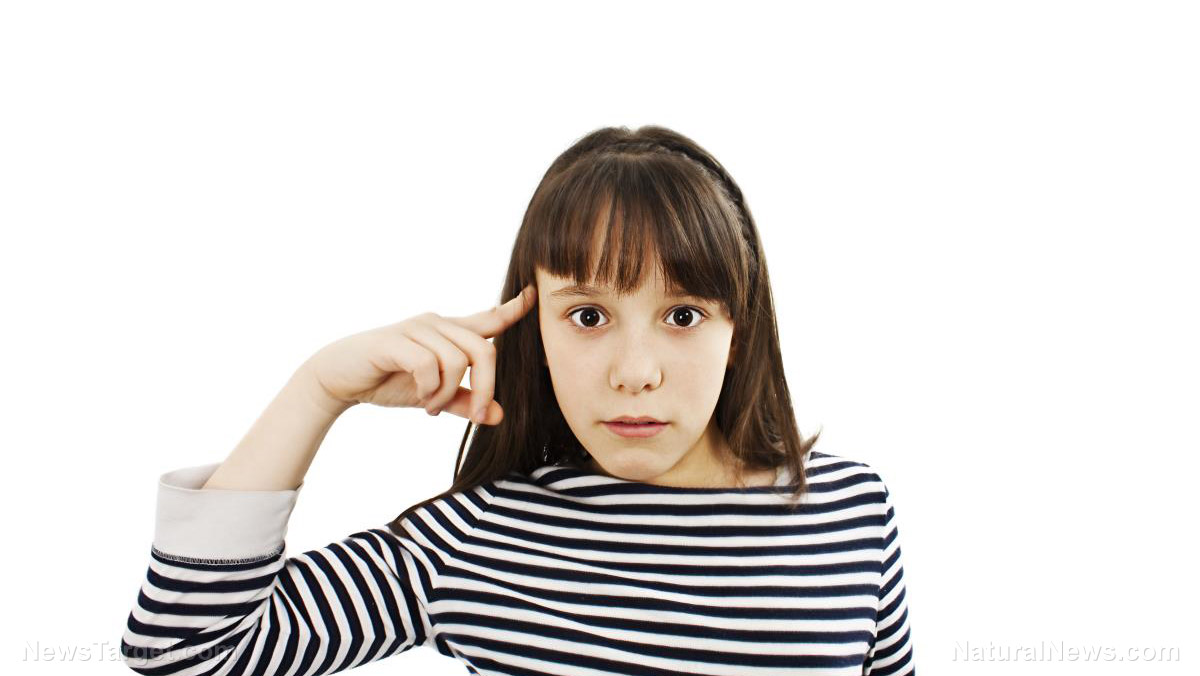Antidepressant prescriptions for UK children up 22% in 5 years
09/06/2021 / By Mary Villareal

Prescriptions for antidepressants written for children aged five to 16 have increased by 22 percent over five years. The effects of the pandemic have been blamed for the record mental health problems faced by children.
Prescriptions issued to primary school children aged five to 11 have risen 20 percent, while prescriptions issued to secondary school students, aged 11 to 18, have risen 23 percent in the same period.
Studies and mental health campaigners suggested that coronavirus lockdowns and the related closure of schools could be increasing mental illness issues on top of other factors that have already affected children, including school pressures, bullying, and bereavement.
Tom Madders from YoungMinds, a mental health charity for children and young people, said that the pandemic had exacerbated existing pressures. Many young people are experiencing isolation, loneliness, and worries about the future.
“While antidepressants can play a role in supporting some young people’s mental health, it’s crucial that they are never seen as a substitute for fast access to talking therapies, especially for younger children,” he said.
The mental health charity is also calling for investment in specialist mental health services to help give early support for young individuals and ensure that they have somewhere to turn when problems emerge.
Anxiety, low mood or depression are some of the leading reasons people contact The Mix, a support charity for people under 25. Chris Martin, the chief executive of the charity, said that the increase of young people being prescribed antidepressants is consistent with the trends they have seen in people contacting their helpline.
The causes are complex; however, unhealthy social media use can contribute to poor mental health, especially if this is combined with peer pressures and the isolating effect of the pandemic.
Child psychotherapist Catherine Knibbs revealed that drugs are often being “handed out” to children for mild anxiety and depression. She said that pills should be prescribed as a last resort. She shared that children’s mental health and wellbeing are complex, and pharmacology should be the last resort instead of the first, as their brains and bodies are still developing and maturing.
Children in crisis since March 2020
Children have been experiencing mental health crises since March 2020, and there had been three distinct peaks of increase in drug prescription in children up to 17 years in England. These coincided with the lockdowns: March 2020, November 2020, and January 2021.
Medics have said that they have seen an increase in children presenting in hospitals and emergency wards who are in mental health crises. Some children as young as eight have cut themselves or overdosed.
A London psychologist blamed the rise in self-harming children on the closure of schools and the restrictions on contact and sports activities.
In June 2021, mental health specialists also noted that very young children are experiencing “locked-in trauma” where they are having problems making friends and interacting. They have also been experiencing anxiety over playing with others.
A separate study from July also noted that several top British universities claimed that nearly five times as many children died by committing suicide during the first year of the pandemic than from COVID-19 itself. (Related: Lockdowns, masks destroying mental health of children and young people.)
Recognizing mental health challenges in children
Children across the U.S., who are expected to return to campuses for the fall semester, are at risk for increased mental health needs.
The Department of Education said in a report that nearly all students have experienced some type of challenge to their mental health and well-being during the pandemic.
Another study also showed that a growing number of kids aged 12 to 17 were going to hospital emergency rooms for suspected suicide attempts.
Researchers analyzed data collected from different studies in various parts of the globe, and a key takeaway is that of the combined 80,879 children who participated in the studies, about 1 in 4 had symptoms of depression, while about 1 in 5 had symptoms of anxiety. The researchers posit that these rates are higher now than before the pandemic.
Mental health specialists can give parents the necessary guidance to best support their children or adolescents. Some may need more time to express their feelings; others may do better with gradual conversations and other activities. Still, others may be more comfortable with direct conversations and speak with trusted adults.
“Depressive symptoms, which include feelings of sadness, loss of interest and pleasure in activities, as well as disruption to regulatory functions such as sleep and appetite, could be elevated during the pandemic as a result of social isolation due to school closures and physical distancing requirements,” the researchers said.
Keeping lines of communication between parents and children is important, as is speaking with pediatricians and specialists to maintain the family’s mental health during the pandemic.
Read more about the effects of COVID-19 in adults and children at Pandemic.news.
Sources include:
Tagged Under: adolescents, Big Pharma, brain health, children, covid-19, cutting, depression, lockdowns, mass medication, mental health, Mental illness, misery, overdose, pandemic, Prescription drugs, self-harm, suicide, young adults
RECENT NEWS & ARTICLES
COPYRIGHT © 2017 PSYCHIATRY NEWS




















